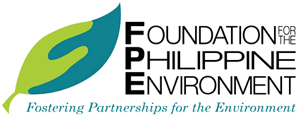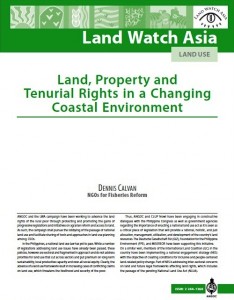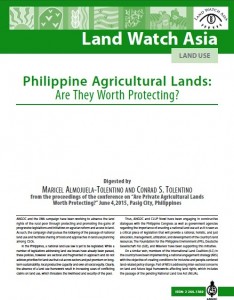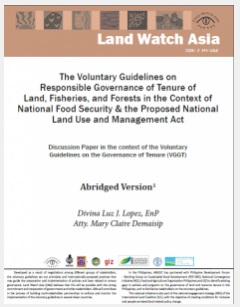Location
VISION
FPE envisions itself as a dynamic, relevant, proactive and growing organization enabling civil society and other stakeholders towards effective biodiversity conservation and sustainable development. FPE envisions communities caring responsibly and living fully in harmony with their environment.
MISSION
FPE seeks to be a catalyst for biodiversity conservation and sustainable development of communities in critical sites.
GOALS
A. To initiate and support community-based approaches and actions in biodiversity conservation and sustainable development;
B. To preserve the capital through judicious fiscal management and generate additional resources for biodiversity conservation and sustainable development;
C. To build local and international cooperation between and among civil society, government and business groups towards development of policies and effective programs for biodiversity conservation and sustainable development;
D. To continually develop an appropriate organizational structure and infrastructure for more effective design and implementation of interventions on biodiversity conservation and sustainable development; and
E. To facilitate information exchange and utilization of plans and initiatives on biodiversity conservation and sustainable development within FPE and among stakeholders.
Members:
Resources
Displaying 1 - 5 of 5Striking a balance: Agricultural interests vis-à-vis housing concerns in the National Land Use Act
This publication is a lobby material to advocate the passage of the National Land Use Act. It examines the seemingly conflicted need for food and housing in the country. The writer – Carmina Flores-Obanil – describes that from 1982 to 1997 massive land conversions in the urban fringes of Bulacan and Cavite attribute to policies encouraging the expansion of industries in rural areas.
Land, property and tenurial rights in a changing coastal environment
This publication is a lobby material to advocate the passage of the National Land Use Act. It shows the adverse effects of the lack of land use planning in coastal communities especially in the advent of a natural disaster. This publication features the Typhoon Haiyan-affected coastal communities in the Visayas Region of the Philippines as examples. It also recommends how this dismal situation could be lessened in the future.
Land use and development in Northern Mindanao
This publication is a lobby material to advocate the passage of the National Land Use Act (NLUA). It highlights the ambiguous land policies and processes as factors to the degradation of watershed and protected areas in Cagayan de Oro and Northern Mindanao Region of the Philippines, resulting to extreme typhoon disasters. Thus, this paper explains how the NLUA will address such policy issues from the local development perspective of Northern Mindanao.
Philippine agricultural lands: Are they worth protecting?
This publication is a lobby material to advocate the passage of the National Land Use Act. As one of the major outputs of the high level experts forum held last June 4, 2015, this abridged version of the proceedings highlights the experts’ discussion, answering the following key questions related to agriculture:
The Voluntary Guidelines on the Governance of Tenure of Land, Fisheries, and Forests in the context of National Food Security (VGGT) and the Proposed National Land Use and Management Act (NLUA)
This issue brief is an abridged version of the VGGT discussion paper, “The Voluntary Guidelines on the Governance of Tenure of Land, Fisheries, and Forests in the context of National Food Security (VGGT) and the Proposed National Land Use and Management Act (NLUA)” that analyzes to what extent the salient principles and recommendations of the VGGT are substantially reflected in the National Land Use Act/NLUA (House Bill 108).






